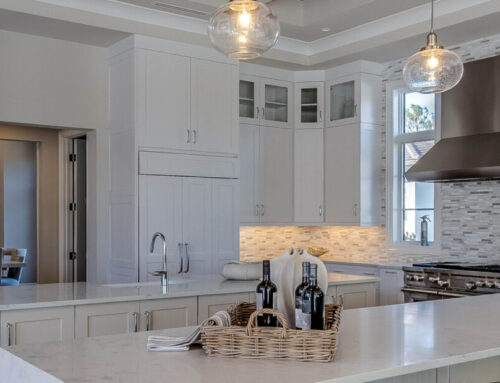Once the kids have left home to start their new lives, many empty nesters are unsure whether they should sell their now too-large homes and downsize or stay in a home that will become harder and harder to take care of. Most boomers see the home as their most significant investment, so it’s no wonder they struggle with this decision. If you are in a similar situation, here are some factors to consider.
Pro: Reduced Upkeep, More Free Time. The larger the home, the more work needs to be done. Even minor improvements can take a lot of time and energy, especially if they require several trips to the hardware store or finding qualified professional help. Even if you have relatively few projects, a large home needs constant care inside and out, which can be physically demanding. A smaller home means less time spent on upkeep, which means more free time to do the things you actually enjoy, like taking a dance class or learning how to play golf.
Pro: Reduced Expenses. Unless you’re relocating to a high-cost area, moving to a smaller home usually brings significant savings. Depending on how much equity you have built up, you may be able to live mortgage-free. Smaller homes also cost less to heat and furnish. Depending on individual circumstances, you may even spend less on commuting and/or traveling. Feeling more financially secure has a myriad of benefits, including less stress and more freedom to enjoy yourself.
Pro: Improved Social Life. Many retirees envision a lifestyle that includes fun activities, spending time with new and old friends and enjoying local events. They move from large family homes to condos and from cold-weather areas to warm ones for this very reason. Before you move to a different city or state, be sure to hire a qualified real estate agent to help you find the spot that best suits your needs and budget. With careful planning, you could end up living near the ocean or waking up every day to a view of the mountains.
Con: Leaving Memories Behind. We all tend to become emotionally attached to the places we live in, and moving away can be traumatic. Downsizing also means saying goodbye to furniture and other objects that memories are attached to. Bringing a few of the most important items with you will make your new place feel more like home. Taking pictures of the house and any items you have to leave behind also helps, as does focusing on the new memories you’ll be making.
Con: Your Home May Have Depreciated. Real estate values fluctuate over time, and sometimes owners overestimate what their home is worth. Property values have risen in many locations, which means you could end up spending more to buy your next home, even if it’s smaller. You should not put your home up for sale until you have a professional determine its market value and what you can expect to get for it. You obviously don’t want to lose money in the transition.
Con: Less Space for Family Visits. A smaller residence will make accommodating guests more difficult, but an even more significant worry is housing grown children who are increasingly moving back home to save money. If you see this as a possibility, and you still want to downsize, look for a place with a spare bedroom or a finished basement.
Many factors need to be considered before deciding to downsize. If you feel overwhelmed, do not hesitate to contact a local Coldwell Banker Pacific Properties independent agent to help you sort through the pros and cons.







Leave A Comment